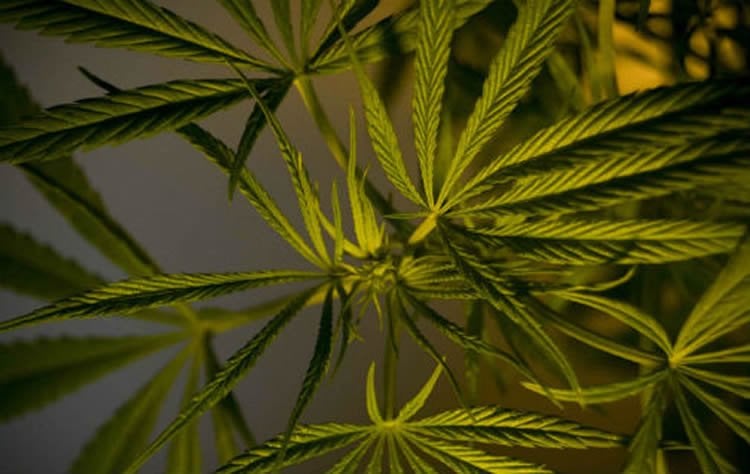Summary: While researchers report the risk of developing psychosis from cannabis use is relatively small, those who use the drug and already suffer from schizophrenia may notice their condition worsen.
Source: University of York.
Scientists at the University of York have shown that the risk of developing psychosis, such as hallucinations, from cannabis use is small compared to the number of total users.
The research, published in the journal, Addiction, also showed for the first time that there is sufficient evidence to demonstrate that for patients who already have schizophrenia, cannabis makes their symptoms worse.
More than two million people in England and Wales used cannabis in the past 12 months, but the latest research shows that banning the drug would have low impact on mental health.
Relatively rare
In order to prevent just one case of psychosis, more than 20,000 people would have to stop using cannabis, as shown by a previous study led by the University of Bristol.
This means that at a population level, an increased risk of psychosis from cannabis use is low, and those vulnerable to developing serious mental health problems is relatively rare. The research highlights, however, that more reviews on the impact of high potency cannabis is needed in order to make a full assessment of the risks.
Ian Hamilton, lecturer in mental health at the University of York’s Deparment of Health Sciences, said: “The link between cannabis and psychosis has been an ongoing research topic since the drug became popular in the 1960s. Most of the high profile studies that we have access to, however, are from a time when low potency cannabis was the norm, but today high potency is more common.
“High potency cannabis contains less of a chemical that is believed to protect against negative side-effects, such as psychosis, and a higher level of a chemical that can trigger psychosis. In this new study, we looked at both low and high potency, but it is clear that we need more evidence from high potency-related health cases to further investigate this link in modern-day users.”
Increased symptoms
Despite this, the research was clear that the more high potency cannabis used, the higher the risk of developing mental health problems, even if they are relatively low in number. For those who already had schizophrenia cannabis exacerbated the symptoms.

The greatest risk to health, however, comes from cannabis users who combine the drug with tobacco. This exposes young people in particular to tobacco dependency at an early age, increasing the chances of cancers, infections, and other health-related issues.
Previous research at York showed that regulating cannabis use could result in more effective strategies aimed at helping drug users to access the right support and guidance. The policy report illustrated, however, that there is too much uncertainly around treatment regimes in an unregulated market to target the appropriate level of care.
Regulation
Mr Hamilton said: “Regulation could help reduce the risks to health that cannabis use poses, as a regulated cannabis market would introduce some quality control.
“This would provide users with information about the strength of cannabis on offer, something they usually only discover after exposure in the current unregulated market.
“The public health message about the link between cannabis and psychosis has been a difficult one to communicate, but the evidence still points to the benefits of regulations that seek to advise on the greatest potential health risks, which currently arise due to tobacco use.”
Source: Samantha Martin – University of York
Image Source: NeuroscienceNews.com image is adapted from the University of York news release.
Original Research: Abstract for “Cannabis, psychosis and schizophrenia: unravelling a complex interaction” by Ian Hamilton in Addiction. Published online April 16 2017 doi:10.1111/add.13826
[cbtabs][cbtab title=”MLA”]University of York “Risk of Psychosis From Cannabis Use Lower Than Previously Thought.” NeuroscienceNews. NeuroscienceNews, 21 April 2017.
<https://neurosciencenews.com/cannabis-use-psychosis-6472/>.[/cbtab][cbtab title=”APA”]University of York (2017, April 21). Risk of Psychosis From Cannabis Use Lower Than Previously Thoughte. NeuroscienceNew. Retrieved April 21, 2017 from https://neurosciencenews.com/cannabis-use-psychosis-6472/[/cbtab][cbtab title=”Chicago”]University of York “Risk of Psychosis From Cannabis Use Lower Than Previously Thought.” https://neurosciencenews.com/cannabis-use-psychosis-6472/ (accessed April 21, 2017).[/cbtab][/cbtabs]
Abstract
Cannabis, psychosis and schizophrenia: unravelling a complex interaction
The relationship between cannabis and psychosis and schizophrenia has tested the field of addiction for decades, and in some ways serves as measure of our ability to provide a credible contribution to public health. As cannabis is used widely, many people are interested in the risks the drug poses to mental health. This paper focuses upon a seminal study examining this, the trajectory of subsequent research findings and what this has meant for understanding and communicating risk factor information. These studies provided evidence of a dose–response relationship between cannabis and psychosis, and that for those individuals with schizophrenia cannabis exacerbated their symptoms. The findings fit with a multi-causal model in which vulnerability interacts with a precipitating agent to produce a disease outcome. Even though this is a common model in epidemiology, it has proved difficult to communicate it in this case. This may be because at a population level the increased risk is weak and the vulnerabilities relatively rare. It may also be because people bring strongly held preconceptions to interpreting a complex multi-causal phenomenon.
“Cannabis, psychosis and schizophrenia: unravelling a complex interaction” by Ian Hamilton in Addiction. Published online April 16 2017 doi:10.1111/add.13826






